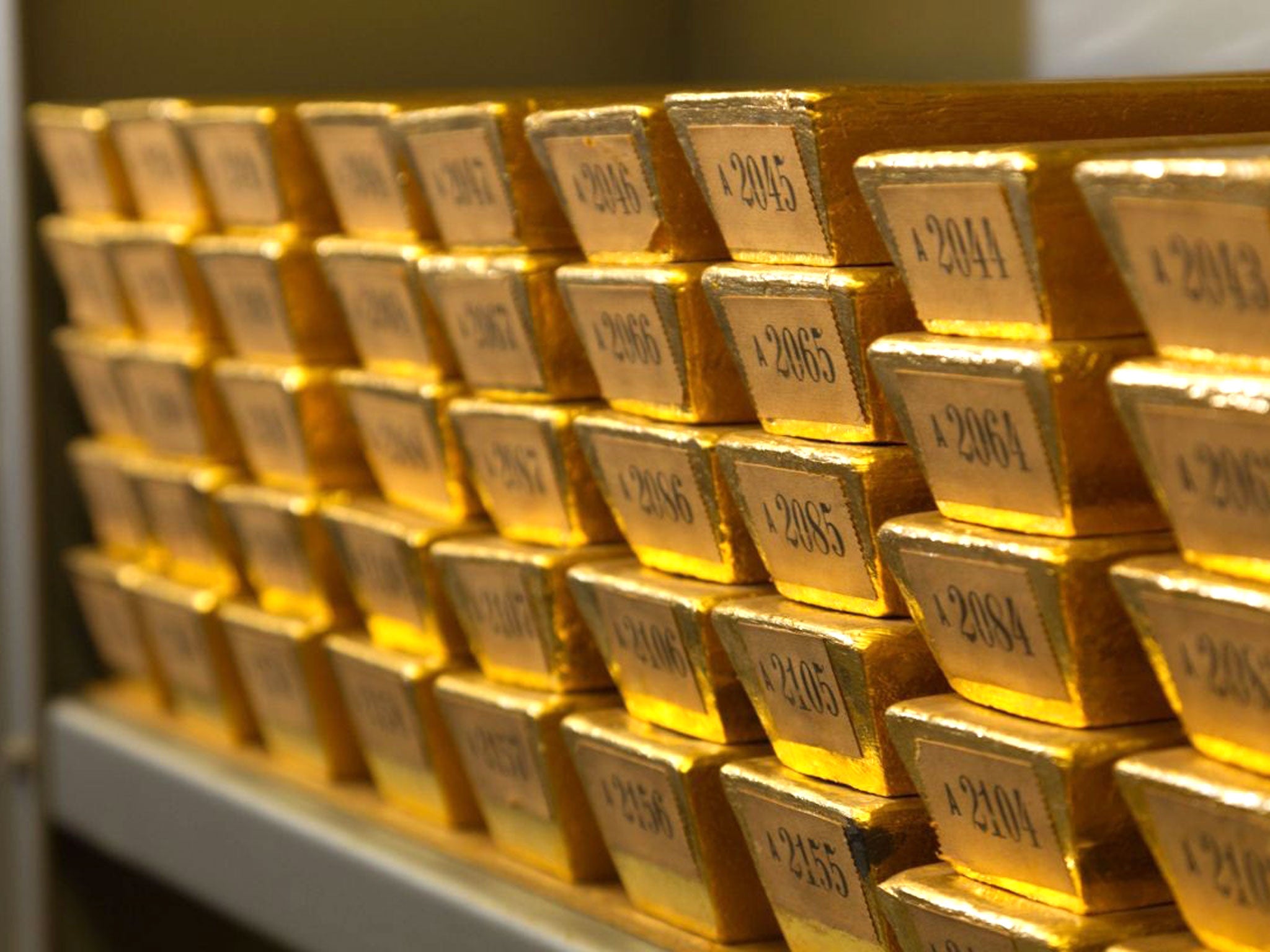The price of gold has soared - but is precious metal really a safe haven?
The price of gold has rocketed 20 per cent, according to the World Gold Council. Rob Griffin sees how to share in the spoils

It's been a great few months for gold. With widespread fears about the global economy fuelling enthusiasm for what is seen as a "safe haven" asset, its price has rocketed 20 per cent – from $1,049 an ounce last December to more than $1,250 now, according to the World Gold Council.
This remarkable bounce has caught everyone by surprise and led to investors reappraising their attitude to both direct holdings in the precious metal and the funds that buy into goldminers, according to Chris Beauchamp, senior market analyst at the spread-betting firm IG.
'The long-term downtrend in gold was the established fact in financial markets on the assumption that interest rates would rise and global economic improvements would continue making it less relevant," he said. "That has been rudely interrupted as gold has raced away.'
Mr Beauchamp believes there are a number of reasons for gold's surge, pointing out that the weakening of the dollar has helped boost the precious metal's reputation as a safe haven during periods of financial uncertainty.
"Investors always increase allocations to gold when they fear for the global outlook and this then takes on a momentum of its own, with strong inflows into exchange-traded funds [ETFs] and goldmining companies from people trying to play the rise," he explained.
Mr Beauchamp also argues that gold has been boosted as expectations of a string of interest rate hikes in the US this year have been punctured.
"People have moved out of the US dollar and US treasuries because they don't think they'll get a good yield anymore – and have moved into gold," he said. "Although gold doesn't pay a yield, it is viewed as something that holds on to its value."
Indeed, people have started to fall in love again with gold. Investor enthusiasm for the metal has risen 8.57 per cent over the past month, according to the Lloyds Bank Investor Sentiment Index – at a time when the desire for equities has fallen 6.88 per cent to its lowest level since the index began in March 2013.
This means that gold has overtaken UK equities in 2016 as the second-most favoured asset class in Britain behind property, said Markus Stadlmann, chief investment officer at Lloyds Bank Private Banking. "Both the understanding of risk and the appetite for it have changed," he explained. "Investors seem to be adopting an increasingly negative attitude, even towards lower- risk assets such as government bonds. This shows the current levels of uncertainty among investors."
There are a number of ways to gain exposure to the precious metal – including holding actual gold, buying into ETFs and investing in companies that are involved in goldmining, according to Justin Modray, founder of Candid Financial Advice.
'An ETF that tracks the gold price – such as the ETFS Physical Gold fund, costing 0.39 per cent a year – is one of the simplest and cheapest ways," he said. "You'll need to buy via a stockbroker or investment platform, which will charge dealing fees, but it's still likely to be cost-effective."
Although buying gold coins or bars is an option, Mr Modray points out that this can be inefficient unless the pieces are very large, because manufacturing costs and mark-ups by gold dealers can easily erode margins. In addition, you will need somewhere safe to store the gold.
"You can buy shares in mining companies but this adds an extra layer of risk as they might have operational issues and their share price movements tend to exacerbate movements in the gold price,' he added. 'This is good news when the price rises but less so when it falls.'
Brian Dennehy, managing director of FundExpert, argued that investors could generate bigger returns through putting their money into a fund that buys into goldminers.
"The share prices of gold companies can be highly geared to the gold price," he said. "When gold bounced 6.3 per cent between 22 July and 21 August 2015, the Smith & Williamson Global Gold & Resources fund returned 11.5 per cent over the same period."
However, Mr Dennehy urged caution.
"Don't believe any of the silly myths about gold being insurance or an inflation hedge,' he argued. 'It is high risk and only for the fleet of foot over a relatively short period. If that suits you, buy the Smith & Williamson fund – but as a maximum of 10 per cent of your portfolio.'
Alistair Hewitt, head of market intelligence at the World Gold Council, is optimistic about the gold price over the coming months.
He believes a combination of official purchases, strength in the Asian markets and continuing momentum in the US and Europe has reinforced gold's credentials as a diversification tool for portfolios, a wealth preserver and a hedge against a range of risks.
"Physical demand will be supported by strong central bank purchases and the continued buying of jewellery, bars and coins by households across the world," he said. "The investment case for gold is as strong as ever. While stock markets have wobbled, gold has performed well."
Join our commenting forum
Join thought-provoking conversations, follow other Independent readers and see their replies
Comments
Bookmark popover
Removed from bookmarks